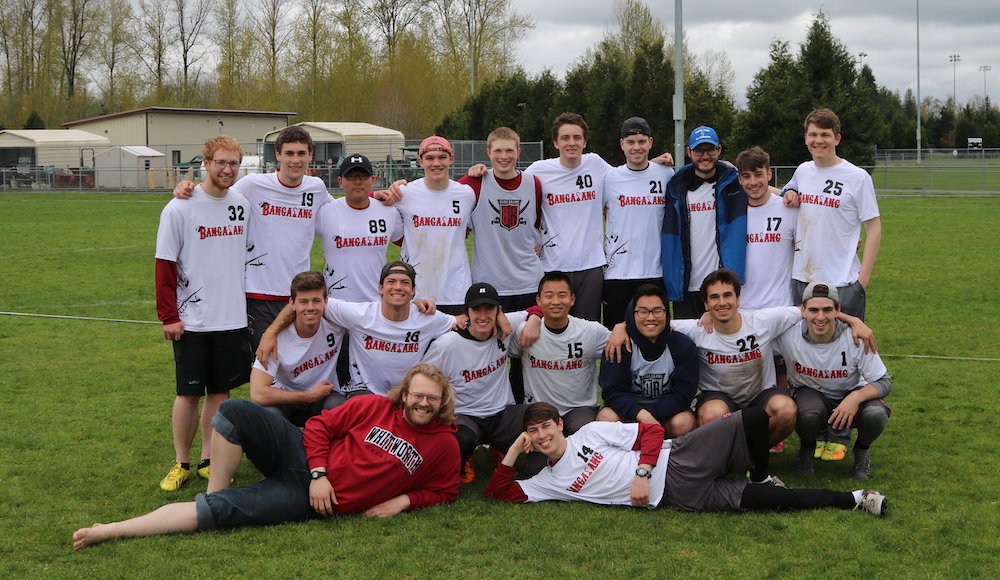The opinions editor of The Whitworthian, whose articles I’m always eager to read and whom I respect, wrote in the most recent issue of the paper that “ASWU does not accurately represent the student body.” Her argument was founded on the recent ratification of a resolution by the Associated Students of Whitworth University (ASWU) and lack of constituency outreach by ASWU senators and representatives to garner input about this resolution. I’m writing now because I am one of three off-campus representatives, and I helped craft the resolution. I care deeply to hear, digest, and thoughtfully respond to this feedback, because it pertains unequivocally to me.
I want to begin with a sincere apology to all off-campus students who feel their elected representation is failing them, followed by an invitation—or an exhortation, rather—to work with us. On February 23, six days before the vote on the resolution took place, off-campus senator Gracie Meiners sent an email to all 1,000-1,200 off-campus students explaining the resolution. Her email explicitly stated that it would express “Whitworth University students’ support of our undocumented students, immigrant students, and students with immigrant families here at our university,” and invited feedback either through email or at the next meeting.
We want to do our best by our off-campus community, but we simply can’t represent the opinions we don’t hear. The fact of the matter is that of those who responded to our email, all but six urged us to vote yes on this resolution, which segues into another valid concern. It’s not lost on me that perhaps few people vocalized opposition of the resolution because they felt that they couldn’t. In the words of a contemporaneous article (“Conservative opinions overlooked at Whitworth”), a swath of the off-campus community might not have reached out to us because they experience Whitworth as a place that “cannot conceive nor respect the fact that there are many students who have different political views than those in leadership.” They may fear we (off-campus leadership) will “criticize [their] way of life and thinking.” The author of the opinion editorial to which I’m referring says, “we are the minority,” and he personally is “not the sort to openly lament and complain” until catered to.
Consider our dilemma. On the one hand, the conservative contributing writer who clearly states he does “not support DACA” says he and like-minded students are in the minority and reluctant “to cause commotion to get [themselves] heard.” Fair enough. On the other hand, the Opinion Editor says, “A leadership that requires more outreach and better representation of all students must be put into place for all students to feel as though Whitworth reflects majority opinions.” (Emphasis added). A valid point. Now let’s reexamine the resolution ASWU passed. The vast majority of what was heard both on and off-campus from students was support of the resolution. We did “reflect majority opinions” by adopting the resolution. So, our dilemma is: if a quantitative majority calls on us four off-campus representatives in ASWU—three Reps and one Senator—to vote one way, are we to assume that the minority of what we hear is actually a quiet majority disinclined to speak their mind, and vote the other way? It’s a Catch-22.
I truly empathize with the editor’s frustration—in which I know she’s not alone—that a smorgasbord of valuable voices doesn’t have a seat at the table when it comes to ASWU decisions. That is indisputably a problem that needs fixing. All things considered, I propose a small step toward addressing the problem and navigating the aforementioned Catch-22. When it comes to achieving more accurate representation of off-campus students, we need suggestions about how to better confer and receive information if email isn’t working (which it evidently isn’t). Would off-campus students like to give us their addresses and receive a physical newsletter in the mail? We can make that happen. Would they like information through texts? We can do that if they give us their numbers. Should we set up a Facebook page that off-campus students can like or follow? If that’s helpful, we’ll make one immediately.
Off-campus students can and should tell us how to do our jobs better for them. I propose that off-campus students engage. Writing an op-ed expressing disappointment in ASWU is an excellent first step and I commend the Opinion Editor for doing so, but to see any change moving forward, we need concrete suggestions for solutions from the rest of the off-campus community. Students do “deserve the opportunity to be heard.” They do deserve to “have their opinion be expressed in ASWU.” They do “deserve the chance to speak up.” Now, it’s time for them to seize that opportunity.
Contact Hannah Howell at [email protected].







Angie Brasher • Apr 20, 2018 at 9:47 pm
As an on-campus student I heard nothing about this before, during, or after. It seems very clear that the off-campus ASWU Leadership communicated this to their constituents, but at least in my hall and 1 or 2 others, there was no communication whatsoever.